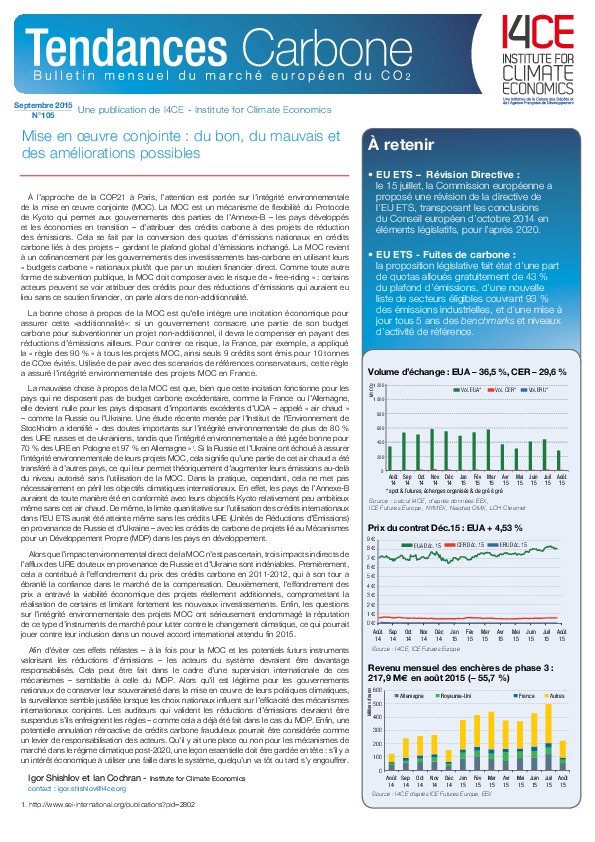Joint Implementation: the good, the bad and how to avoid the ugly
Joint Implementation: the good, the bad and how to avoid the ugly
In order to avoid the ‘ugly’ effects – both in JI and in potential future instruments valorizing emissions reductions – accountability has to be incorporated into the system.
EU ETS Directive
On July 15th, the EU Commission released a legislative proposal to revise the EU ETS Directive post-2020, translating into legislation the October 2014 Council Conclusions
EU ETS carbon leakages provisions
The legislative proposal includes a 43% share of free allocation from 2021 to 2030, a new carbon leakage list representing 93% of industrial emissions, an update of production levels and benchmarks every five years.
